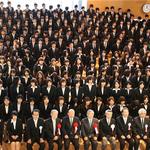The University of Shimane (abbreviated as "Shimane University") is a public university located in Shimane Prefecture, Japan. It was established in 1993 and officially started university education in 2000. The university aims to cultivate talents with multidisciplinary comprehensive abilities and based on social practice, especially in the field of Northeast Asian studies. The following is a detailed introduction to the University of Shimane, including its history, subject settings, educational characteristics, campus facilities, rankings and other information.
Basic Information
Name: Shimane Prefectural University (Japanese: 島根県立大學、しまねけんりつだいがく)
English Name: The University of Shimane (U-Shimane)
Abbreviation: 島县大 (しまねだい)
Address: 1320-1 Chikusa, Hamada City, Shimane Prefecture
Establishment: 1993
Type: Public University
History
1993: Shimane Prefectural University was established.
2000: University education officially started.
2004: Became a public university corporation.
2010s: Gradually expanded the scope of education, added new disciplines and research directions, and improved the quality of education and internationalization.
Discipline
Shimane Prefectural University has multiple faculties and disciplines, mainly focusing on the fields of humanities, social sciences, natural sciences and engineering technology. The specific subject settings are as follows:
Faculty of Humanities and Social Sciences
Faculty of Science and Engineering
Applied Chemistry
Mechanical Engineering
Electrical and Electronic Engineering
Civil Engineering
Faculty of Nursing
Nursing
Junior College
Comprehensive Cultural Studies
Health and Nutrition
Nursing
Nursing
Graduate School Settings
Graduate School of Humanities and Social Sciences
Humanities and Social Sciences Major
Graduate School of Science and Engineering
Applied Chemistry Major
Mechanical Engineering Major
Electrical and Electronic Engineering Major
Civil Engineering Major
Graduate School of Nursing
Nursing Major
Educational Features
Practical Education: Emphasizes the combination of theory and practice, provides a wealth of internships and practical activities, and helps students accumulate practical work experience.
International Education: Actively promotes international education, has established cooperative relations with universities in many countries, and provides overseas exchange programs.
Professional Training: Focuses on students' professional skills training, and cultivates professionals with a solid theoretical foundation and practical ability.
Career Support: There is a dedicated career guidance center that provides services such as career planning, employment consultation and internship recommendations.
Campus Facilities
Library: Has rich book resources and a modern reading environment.
Laboratory: Equipped with advanced experimental equipment to support scientific research and practical teaching.
Sports facilities: Including gymnasiums, sports fields, etc., to promote students' physical and mental health.
Student dormitories: Provide comfortable accommodation environment for students' living and learning.
Research Center
Northeast Asia Research Center: Focuses on research in Northeast Asia, including history, culture, economy and other fields.
Environmental Science Research Center: Researches issues in the field of environmental science and provides intellectual support for local development.
Nursing Research Center: Researches issues in the field of nursing and provides intellectual support for local development.
Student Activities
Club Activities: There are many student clubs covering academic, cultural, sports and other fields.
Volunteer Activities: Encourage students to participate in community service and social welfare activities to cultivate a sense of social responsibility.
Admission Requirements
Entrance Examination: Usually includes written examination and interview. Please refer to the school's official website for specific requirements and procedures.
International Students: Accept international students' applications, and they must meet language proficiency and other relevant requirements.
Rankings
National ranking:
According to the 2023 Japan University Rankings, Shimane University ranks among the top public universities, especially in the humanities and social sciences, science and engineering, and nursing.
Nationally, Shimane University ranks in the top 150 in the comprehensive ranking of public universities.
World ranking:
Due to the relatively small global visibility and influence of public universities, Shimane University does not rank prominently in international rankings. However, in specific subject areas such as humanities and social sciences and nursing, the university has a certain influence in Asia.
Contact information
Tel: +81-855-24-2200
Fax: +81-855-24-2201
Email: info@u-shimane.ac.jp
School motto
Founding spirit: To cultivate talents with high professional qualities and practical abilities, and to contribute to the development and progress of society.
Educational philosophy: Focus on the cultivation of comprehensive qualities and professional knowledge, and strive to cultivate talents with social responsibility and leadership.
Special courses
Humanities and social sciences courses: "Humanities and social sciences courses" are specially set up to cultivate students' critical thinking and humanistic qualities.
Science and engineering courses: "Science and engineering courses" are provided to help students master the knowledge and skills of applied chemistry, mechanical engineering, electrical and electronic engineering, and civil engineering.
Nursing courses: "Nursing courses" are provided to help students master nursing knowledge and practical skills.
Employment situation
Employment rate: Shimane Prefectural University has a high employment rate for graduates, and many graduates have found satisfactory jobs in education, medical care, engineering and technology.
Notes
Reputation: Shimane Prefectural University enjoys a good reputation in Shimane Prefecture and throughout Japan, especially in the fields of humanities and social sciences, science and engineering, and nursing.
Continuing education: Graduates can choose to continue their studies in graduate school or other higher education institutions, or they can directly enter the workplace.
The above is a basic introduction to Shimane Prefectural University. If you have more specific questions or need detailed information, it is recommended to visit the school's official website or contact the relevant department of the school directly.
-
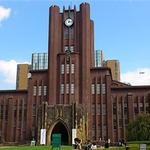
The University of Tokyo
-
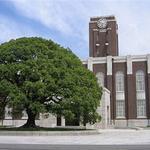
Kyoto University
-
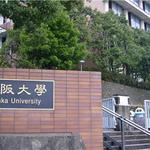
Osaka University
-
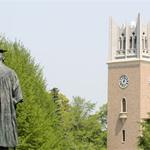
Waseda University
-
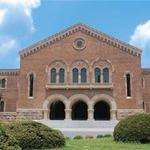
Hitotsubashi University
-
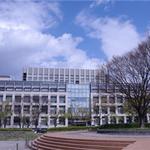
Nagoya University
-
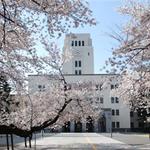
Tokyo Institute of Technology
-
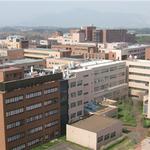
University of Tsukuba
-
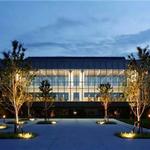
Keio University
-
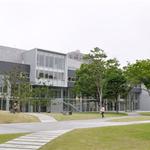
Tohoku University
-

Mesoamerican University
-

Istmo University
-

Mariano Galvez University of Guatemala
-

Regional University of Guatemala
-

Galileo University
-

Francisco Marroquín University
-

Rafael Landívar University
-

University of the Valley of Guatemala
-

University of San Carlos of Guatemala
-

Technological Institute of Tlaxcala Plateau
-

Golfo University
-

Technological University of South Sonora
-

Technological University of Huejotzingo
-

Tizimín Institute of Technology
-

Chilpancingo Institute of Technology

